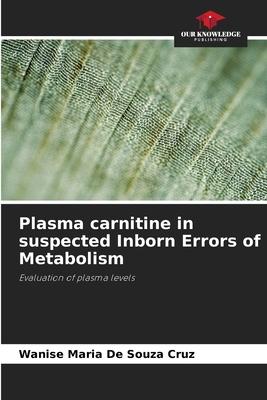L-carnitine is an important nutrient for energy metabolism. It participates in the transport of long-chain fatty acids across the mitochondrial membrane to generate energy and maintain the appropriate concentration of free coenzyme A. L-carnitine homeostasis is maintained through intake from food sources, biosynthesis, transport to tissues and efficient renal reabsorption. Only the brain, liver and kidneys are capable of carrying out the complete biosynthesis of L-carnitine and only the liver and kidneys are responsible for supplying the tissues. Alterations in L-carnitine metabolism can occur due to hereditary causes or secondary to various acquired medical conditions. A rapid, simple and low-cost methodology was studied to screen for plasma L-carnitine deficiency in patients with various diseases or to monitor patients under supplementation.
| FindBook |
有 1 項符合
Plasma carnitine in suspected Inborn Errors of Metabolism的圖書 |
 |
Plasma carnitine in suspected Inborn Errors of Metabolism 作者:de Souza Cruz 出版社:Our Knowledge Publishing 出版日期:2024-04-30 語言:英文 規格:平裝 / 52頁 / 22.86 x 15.24 x 0.3 cm / 普通級/ 初版 |
| 圖書館借閱 |
| 國家圖書館 | 全國圖書書目資訊網 | 國立公共資訊圖書館 | 電子書服務平台 | MetaCat 跨館整合查詢 |
| 臺北市立圖書館 | 新北市立圖書館 | 基隆市公共圖書館 | 桃園市立圖書館 | 新竹縣公共圖書館 |
| 苗栗縣立圖書館 | 臺中市立圖書館 | 彰化縣公共圖書館 | 南投縣文化局 | 雲林縣公共圖書館 |
| 嘉義縣圖書館 | 臺南市立圖書館 | 高雄市立圖書館 | 屏東縣公共圖書館 | 宜蘭縣公共圖書館 |
| 花蓮縣文化局 | 臺東縣文化處 |
|
|
圖書介紹 - 資料來源:博客來 評分:
圖書名稱:Plasma carnitine in suspected Inborn Errors of Metabolism
|











